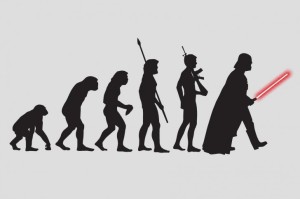 Modern political debates, from the 18th Century up until today, are full of appeals to the ideas of individualism and collectivism, whether open or merely implied. People speak of “the common good” or “public goods” or “obligations to society” on one hand, and of “individual rights” or “individual freedom” on the other.
Modern political debates, from the 18th Century up until today, are full of appeals to the ideas of individualism and collectivism, whether open or merely implied. People speak of “the common good” or “public goods” or “obligations to society” on one hand, and of “individual rights” or “individual freedom” on the other.
The late novelist and philosopher, Ayn Rand, is well known today for being an arch individualist who was very opposed to any form of collectivism. But what does it really mean to be an individualist or collectivist? Are the two views mutually exclusive? Is one or the other right, or is the reality a mixture of both? Here I will discuss what individualism and collectivism mean, which one or mixture represents the truth, and what the major implications of each of the views are for today’s moral and political debates.
Life is the Active Pursuit of Self-Sustaining Goals
The issue of individualism versus collectivism does not arise out of thin air. It arises out of the observation–whether explicitly stated or implicitly understood–that life consists of organisms that pursue goals that keep them alive. Lions find watering holes and hunt gazelles, eagles catch rabbits or fish, termites dig and build mounds for shelter, etc. The ultimate goal of this activity for any given organism is its continued life as the type of organism it is. (The origin of organisms in evolution has ensured that reproduction is a natural part of the life-pattern of each nonhuman species–i.e. reproductive behavior is part of an individual organism being the type of organism it is.)
The question of individualism versus collectivism is the question of what the living unit is for human beings–that is, what is the human organism that acts toward self-sustaining goals: is it the individual, or some group?








